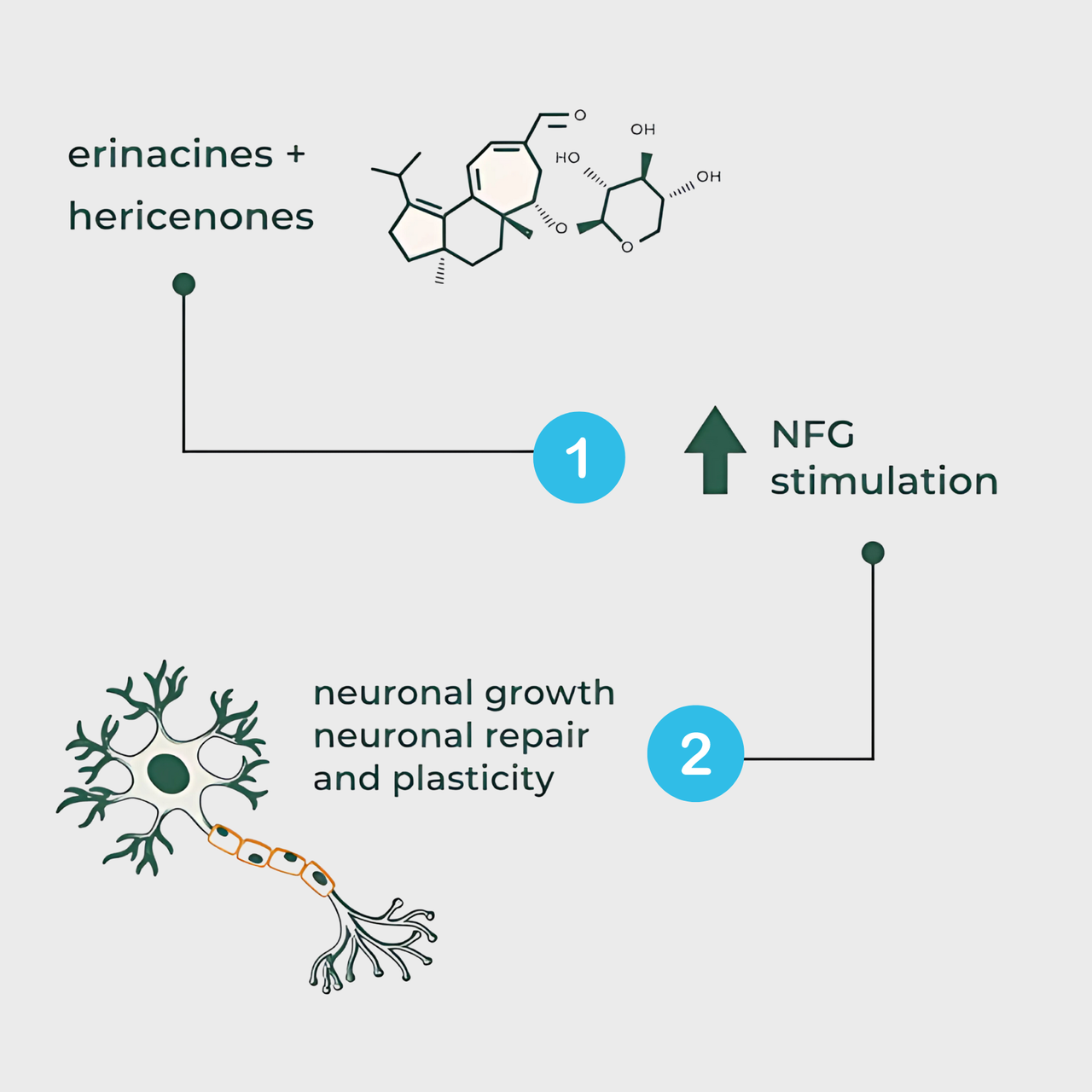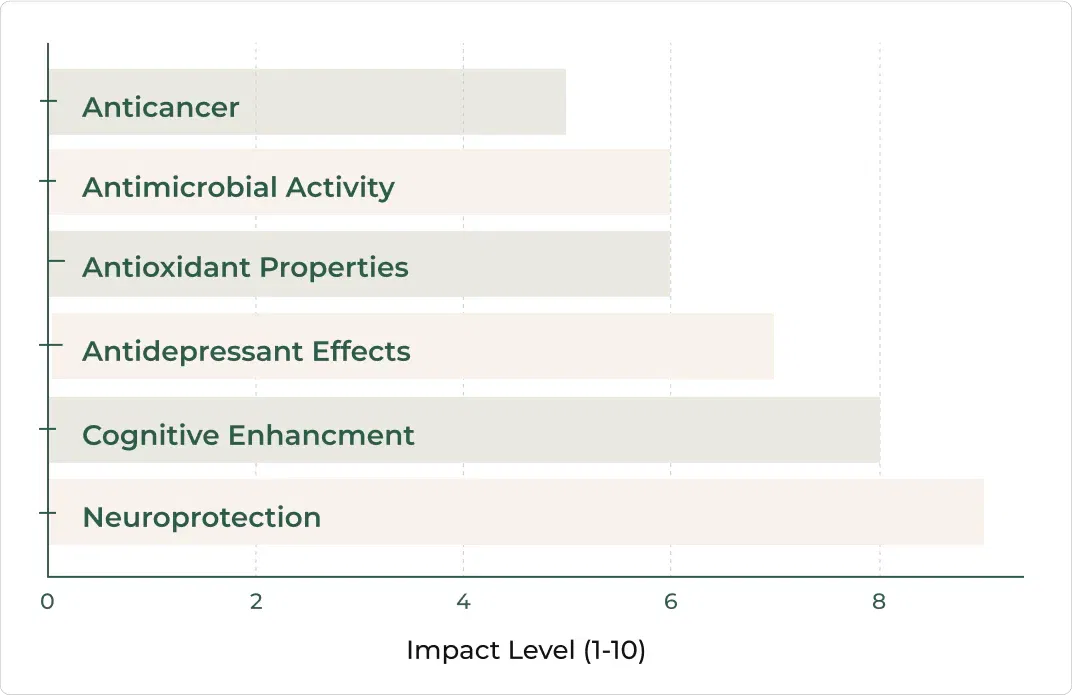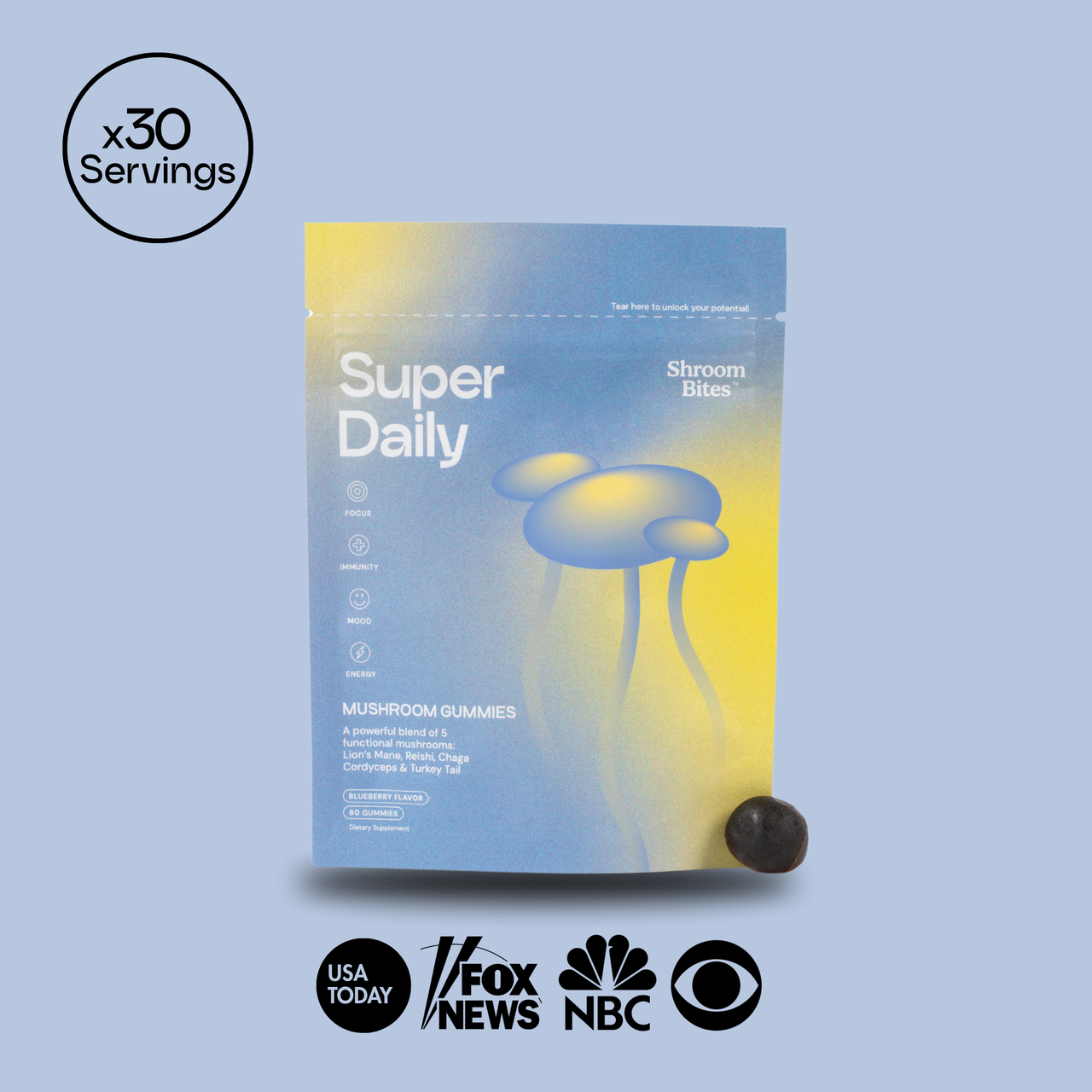
Lion's Mane
Memory, Focus, Cognition
Lion's Mane, scientifically known as Hericium Erinaceus, is a distinctive mushroom celebrated for it's cognitive benefits. Native to North America, Europe, and Asia. Renowned for supporting cognitive function, including focus and memory, Lion's Mane is a valued natural ingredient that contributes to overall mental well-being.
How It Works
Lion's Mane supports the production of nerve growth factor (NGF), a protein essential for the survival, upkeep, and regeneration of neurons. [1] NGF is key to the growth of new neurons and the repair of neural damage. The bioactive compounds erinacines and hericenones, present in Lion's Mane, boost NGF production by stimulating NGF mRNA expression in the brain, particularly in hippocampal neurons, which are critical for learning and memory functions.


*The information for the graph on the benefits of Lion's Mane was derived from the following research papers: [1], [2], [3], [4].
Benefits
Lion's Mane has shown promise in enhancing cognitive function and may help in the prevention of neurodegenetarive diseases like Alzheimer's and Parkinson's. Its bioactive compounds, such as hericenones and erinacines, can stimulate nerve growth factor (NGF) production, crucial for brain health [1][2].
A pilot study indicated that acute supplementation improved cognitive performance and reduced subjective stress in young adults. [3].
Lion's Mane mushroom also possesses antiomicrobial properties, which make it effective in fighting various bacterial infections. Research has shown that extracts of Lion's Mane exhibit significant antibacterial activity against both Gram-positive and Gram-negative bacteria, which are responsible for a wide range of infections. The antimicrobial effects of Lion's Mane are attributed to its bioactive compounds, such as fatty acids, terpenoids, and polysaccharides, which disrupt the bacterial cell membrane and inhibit the growth of pathogens. These finding suggest that Lion's Mane could be used as a natural alternative to conventional antibiotics, particularly in the treatment of antibiotic-resistant bacterial strains. Moreover, it's antimicrobial properties also contribute to its potential as a food preservative, extending the shelf life of products by preventing bacterial contamination.[1]
Lion's Mane is believed to exert its mood-stabilizing effects by enhancing the expression of neurotrophic factors, such as NGF and brain-derived neurotrophic factor (BDNF), which are crucial for the growth and maintenance of neurons involved in mood regulation. Additionally, Lion's Mane may influence the hypothalamic-pituitary-adrenal (HPA) axis, a central stress response system that, when dysregulated, can contribute to the development of depression and anxiety. By modulating the HPA axis, Lion's Mane can help reduce stress and improve resilience to psychological stressors. Clinical studies have also indicated that Lion's Mane can alleviate symptoms of depression and anxiety in individuals with mild cognitive impairment, possibly due to its anti-inflammatory and antioxidant properties that help mitigate the impact of chronic stress on the brain. These findings suggest that Lion's Mane could serve as a valuable adjunct therapy for managing depressive disorders and enhancing overall emotional well-being.
Lion's Mane mushroom has shown promising potential in the field of oncology due to its anticancer properties. Studies have demonstrated that extracts from Lion's Mane can inhibit the growth of cancer cells and induce apoptosis (programmed cell death) in various types of cancer, including lung adenocarcinoma and gastric cancer. The anticancer effects of Lion's Mane are thought to be mediated by its bioactive compounds, such as polysaccharides and hericenones, which have been found to inhibit tumor growth and metastasis by modulating the immune response, reducing oxidative stress, and interfering with cancer cell proliferation. Additionally, Lion's Mane may enhance the effectiveness of conventional cancer treatments by boosting the immune system and reducing the side effects of chemotherapy.
REFERENCES
[1]
[2]
Therapeutic Potential of Hericium erinaceus for Depressive Disorder
[3]
Biological activities and chemical profile of Hericium erinaceus mycelium cultivated on mixed red and white jasmine rice
[4]
Prospecting medicinal properties of Lion's Mane mushroom
Explore Our
Ingredients
Start Your Day
The Right Way

